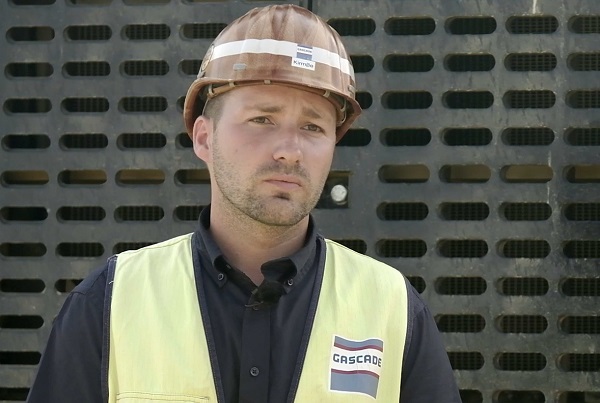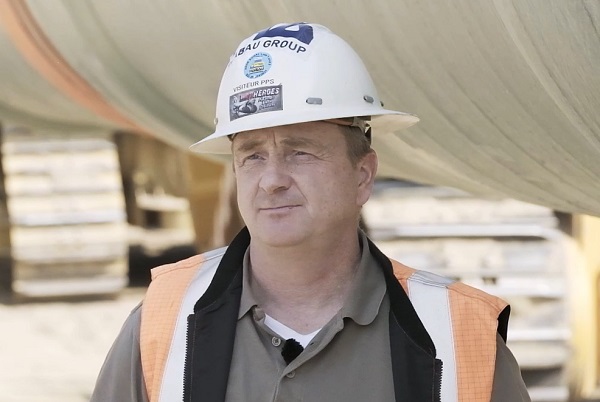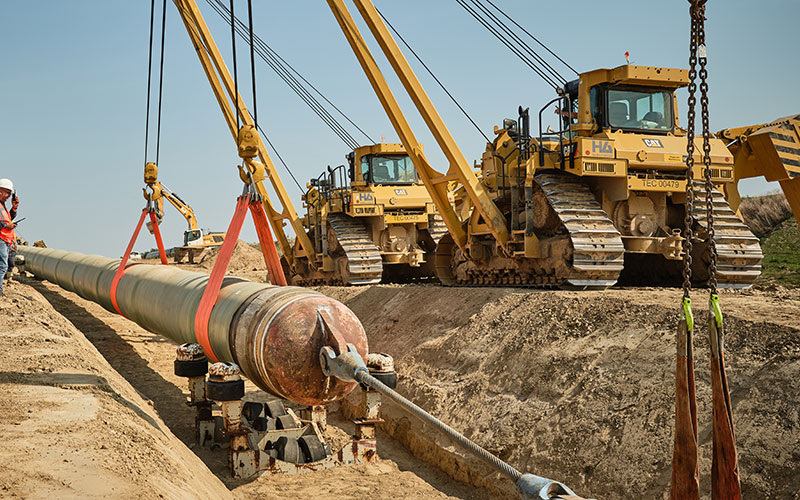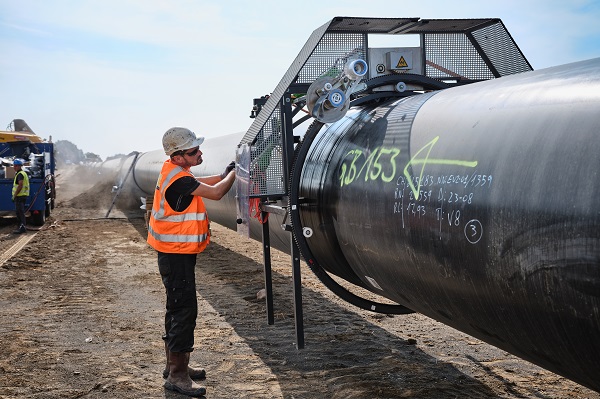Micro-tunnelling – protecting nature
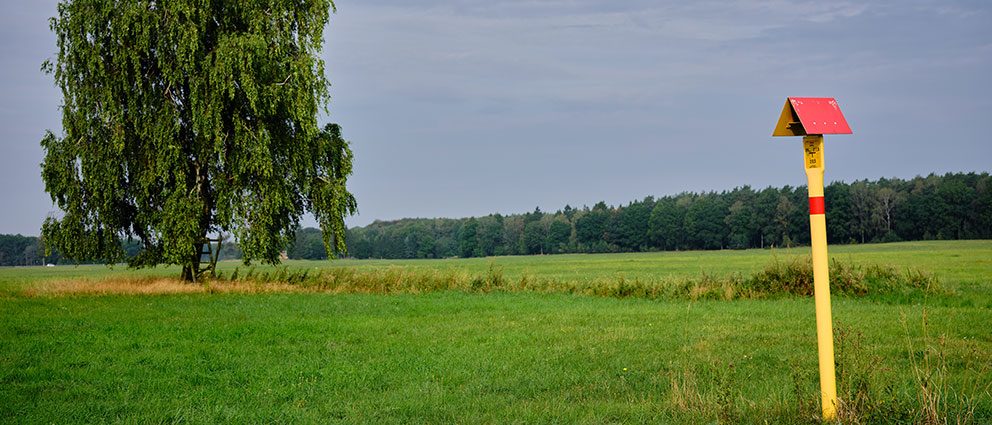
When construction of the EUGAL pipeline commenced in Mecklenburg-Vorpommern in Germany, the team working near the Peene river opted to use micro-tunnelling – both to protect nature and to tackle the challenges presented by the landscape. But pipelines laid using this approach require an even higher level of mechanical protection. A combination of DEPROTEC®-GFK and DENSOLEN® 3-ply tapes proved to be the perfect solution.
Sascha Kirmße, EUGAL Construction Manager for Lots 1 + 2 from GASCADE, and Manfred Klingelhöfer, Pipeline Construction Manager from PPS Pipeline Systems, share their experiences of micro-tunnelling and working with DENSO.
Mr Kirmße and Mr Klingelhöfer, what are your roles in the construction of the EUGAL pipeline?
Sascha Kirmße: I'm a Construction Manager at GASCADE and I'm responsible for the construction of two of the fourteen EUGAL construction lots, which equates to a total of around 71 kilometres of pipeline.
Manfred Klingelhöfer: I'm the responsible business unit manager for the long-distance pipeline construction division at PPS. As the unit manager, I'm responsible for all areas of the EUGAL project from the tendering stage onwards, from acquisition to construction.
Why do you work with DENSO?
Manfred Klingelhöfer: I've been working with DENSO for over 20 years, primarily in Germany and Austria but also in many other European countries. DENSO offers a wide range of products that are relatively simple to use, which is, of course, a huge help to us on construction sites. The application process is straightforward and the products are easy to apply. The high quality of the products means that we can deliver a high-quality end result.
What are the specific challenges on this site?
Sascha Kimße: The particular challenge in terms of the construction of the EUGAL pipeline is the large number of road crossings, bodies of water, railway lines, natural conservation areas and other highly sensitive areas.
The pipeline is constructed from around 47,000 individual pipes. Each pipe is 18 metres long and weighs about 15 tonnes, with a diameter of 1.4 metres – so that is a major logistical challenge too.
Manfred Klingelhöfer: In this project, the large dimensions of the pipeline are an enormous challenge. And then there's the tight scheduling and stringent environmental requirements to factor in too.
Why have you opted for micro-tunnelling to cross under the river Peene?
Manfred Klingelhöfer: Mecklenburg-Vorpommern has a high percentage of marl and lots of boulders from the last ice age, as well as high ground water levels that we need to cross. These conditions mean that we have to approach our civil engineering work in a specific way. The micro-tunnelling process does not affect the conservation area and will not disturb the local flora and fauna. What's more, it is a very safe method for the trenchless installation of long pipelines.
What are the specific challenges associated with this process?
Sascha Kirmße: Because of the higher levels of mechanical stress involved, just placing the pipe in the micro-tunnel is a major challenge in itself.
Manfred Klingelhöfer: The length of the micro-tunnel is also a challenge. Our tunnel is around a thousand metres long, the second longest in the entire EUGAL pipeline. The geology of the region, with its large boulders and marl layers that we have to get through, combined with inhomogeneous rock, also places high demands on the tools we use.
And how do you protect the welded pipeline from friction when pulling it through the tunnel?
Manfred Klingelhöfer: Around the micro-tunnel area, the pipe has an additional GFK casing, which guarantees better mechanical protection than the polyethylene factory coating. In addition to the GFK coating, we also use insulators to reduce friction and limit pipe damage.
Why do you use the DEPROTEC®-GFK system for mechanical protection?
Manfred Klingelhöfer: The DEPROTEC®-GFK System from DENSO gives us both guaranteed application results and excellent quality – including in terms of abrasion resistance.
And you use DENSOLEN® 3-ply tape to protect the pipe against corrosion. Why?
Manfred Klingelhöfer: In large pipeline installations in particular, we opt for DENSOLEN®-3-ply tape because it guarantees high-quality results with easy application.
How many weld seams do you coat each day?
Sascha Kimße: When we're using the DENSOMAT®-11 wrapping device for automatic field-joint coating, we coat around 40 to 50 seams a day.
Manfred Klingelhöfer: Our team find it much easier to apply the DENSOLEN® system with the DENSOMAT®-11. It's a fantastic coating tool for our civil engineering operations.
What do you enjoy most about your work?
Manfred Klingelhöfer: I enjoy the challenge of being confronted with new obstacles every day. On a large construction site, the days are varied and fulfilling. And by the end of the day, you can enjoy the satisfaction of having solved that day's issue.
And what do you look forward to at the end of each week?
Sascha Kirmße (laughs): To seeing my girlfriend, who is very far away.
Manfred Klingelhöfer: At the end of the week, I start looking forward to the next one.
Thank you for the interview!
Contact – What can we do for you?
Do you have questions about products, system solutions or our company? Fill in our contact form. We are looking forward to hearing from you.
